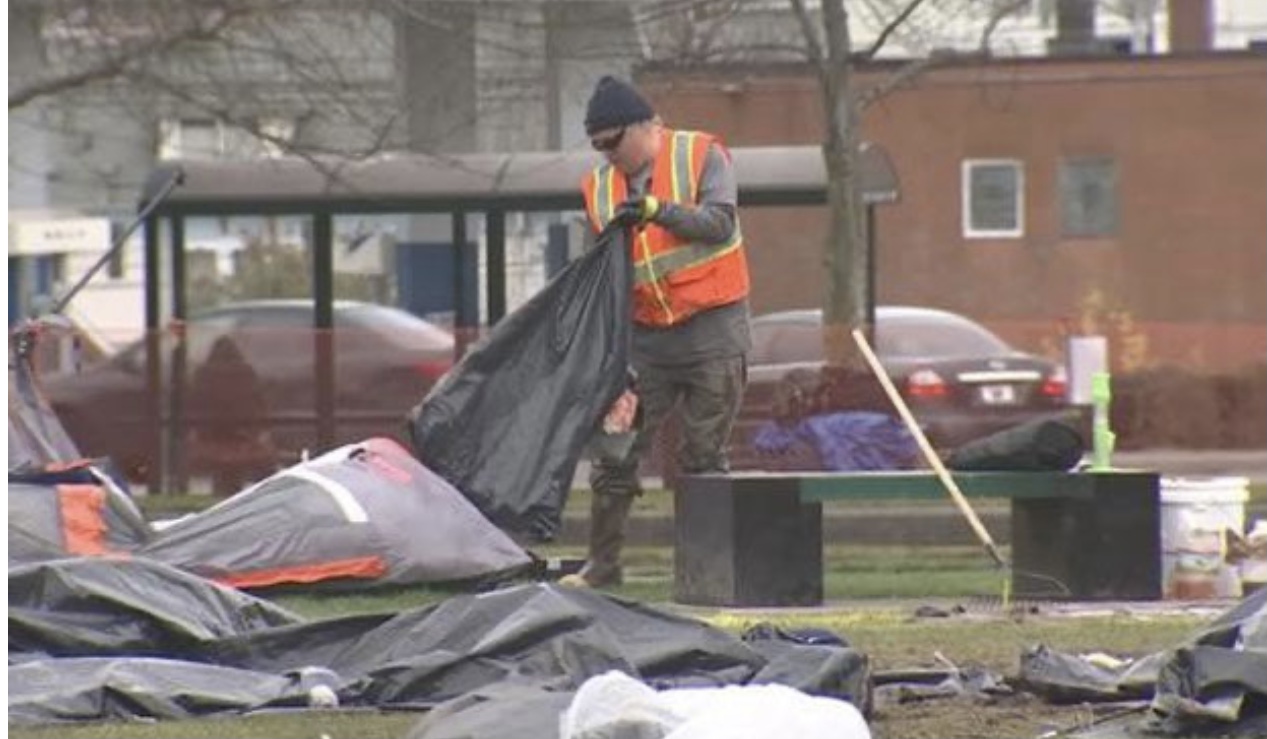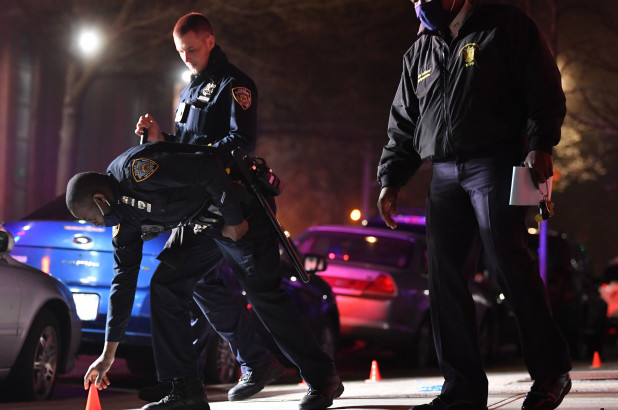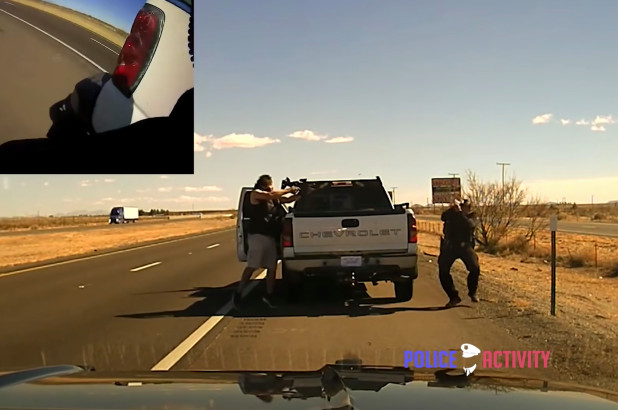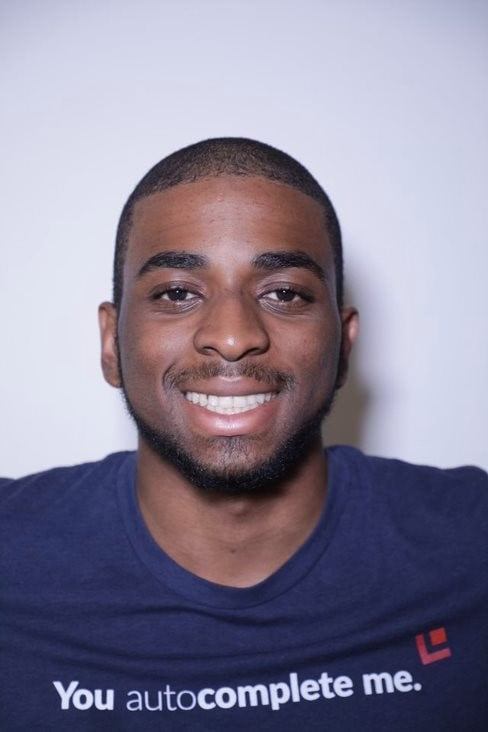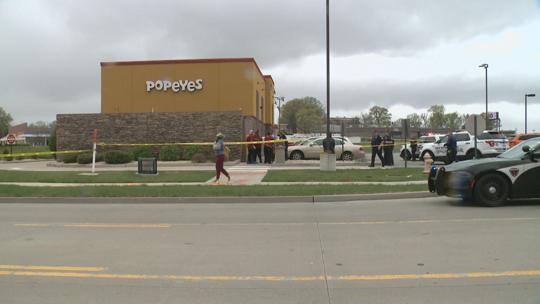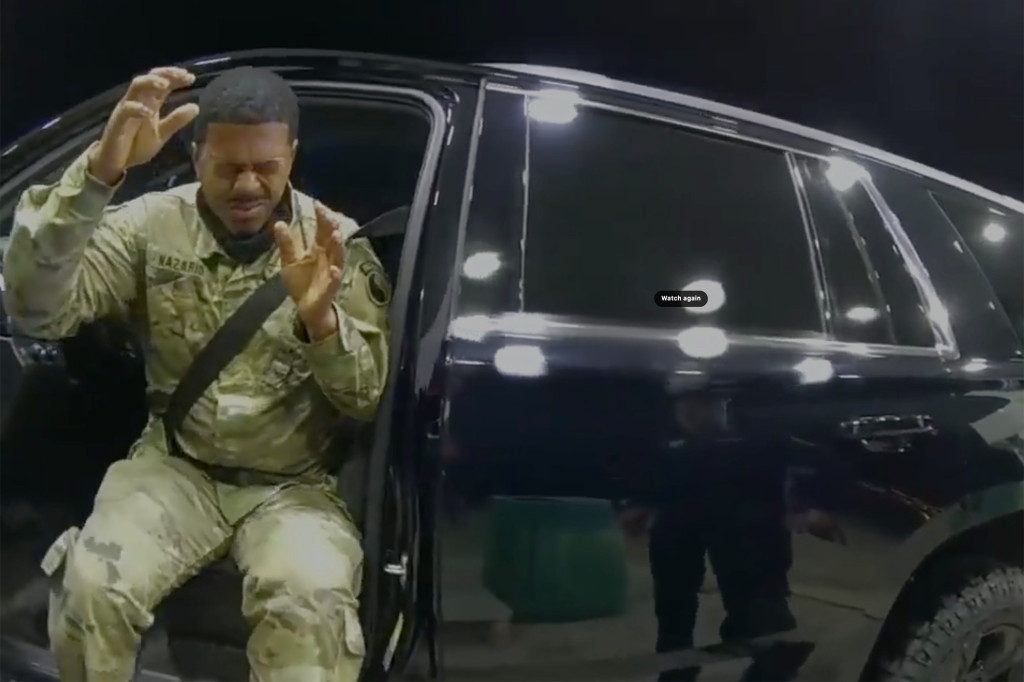Court rules grocery store’s inaccessible website isn’t an ADA violation
A federal appeals court struck a significant blow against disability rights this week when it ruled that a Florida grocery store’s inaccessible website did not violate the Americans with Disabilities Act. The ruling contradicts a 2019 decision by a different appeals court holding that Domino’s did violate the ADA when it failed to make its app accessible to blind people. The disagreement between courts creates uncertainty about the rules that will govern online accessibility in the future.

Winn-Dixie is a grocery store chain with locations across the American South. Juan Carlos Gil is a blind Florida man who patronized Winn-Dixie stores in the Miami area for about 15 years.
few years ago, Gil learned that the store offered customers the ability to fill prescriptions online. Ordering online saves customers time because prescriptions are ready when the customer arrives. Gill also preferred to order prescriptions online because it offered greater privacy. In court, he testified that ordering in person as a blind man made him “uncomfortable because he did not know who else was nearby listening” as he told the pharmacist his order.
Unfortunately, the Winn-Dixie website was incompatible with the screen-reading software Gil used to surf the web, rendering it effectively useless to him. Incensed, Gil stopped patronizing Winn-Dixie and filed a lawsuit under the Americans with Disabilities Act. Gil argued that the inaccessible design of the Winn-Dixie website discriminated against blind customers like him because it forced them to order prescriptions in person, a process that is slower and offers less privacy.
In his lawsuit, Gil also said he couldn’t access two other features of the Winn-Dixie website: a store locator function and the ability to clip digital coupons and automatically apply them at the register with his loyalty card.
A trial court victory
In 2017, a trial court ruled in Gil’s favor, finding that Winn-Dixie’s website discriminated against blind users. Specifically, Title III of the ADA requires that a “public accommodation” such as a grocery store must provide disabled customers such as Gil equal access to its “goods, services, facilities, privileges, advantages, or accommodations.”
Winn-Dixie had argued that the law defines “public accommodations” to only include physical locations like a store. A website isn’t a physical location, and hence it’s outside the scope of the law, the grocery chain argued.
But Judge Robert Scola disagreed.
“Where a website is heavily integrated with physical store locations and operates as a gateway to the physical store locations, courts have found that the website is a service of a public accommodation and is covered by the ADA,” Scola argued.
A website might not be a physical location, Scola reasoned, but a customer who can’t use the website doesn’t have full access to the store’s services, privileges and advantages—such as the service of ordering a prescription ahead of time for quick and discreet pickup.
An appeals court reversal
The grocery chain appealed the case to the 11th Circuit Appeals Court, which reversed Scola in a 2-1 ruling.
The two-judge majority placed a lot of weight on the fact that the ADA only applies to physical spaces. In their view, a website is not a public accommodation as the ADA defines the concept.
And while filling a prescription in person might not be as private or convenient as placing an order online, the judges argued that it was good enough to satisfy the ADA.
“Although Gil was not always happy with the speed or privacy of the service he received at the pharmacy, nothing prevented Gil from refilling his prescriptions during his time as a Winn-Dixie customer,” wrote Judge Elizabeth Branch for the majority.
But a dissenting judge, Jill Pryor, rejected the majority’s reasoning. “After comparing the experiences of Winn-Dixie’s disabled and nondisabled customers regarding express prescription refills, I cannot understand how the majority concludes that disabled customers, like Gil, were offered equal treatment,” she wrote. She argued that the online prescription feature was a service of the physical store and therefore subject to the ADA.
But Branch’s majority opinion warned that such a broad interpretation of “services” would open a Pandora’s box.
“The dissent concludes that because visually disabled individuals cannot access the website’s content, they are not receiving a ‘comparable’ or ‘like’ experience to that of sighted customers,” she wrote. “But under such an expansive interpretation, virtually anything—from the tangible to the intangible—might be deemed a service, privilege, or advantage.” She argued Congress didn’t intend “such a sweeping interpretation” of the law.
A circuit split
The ruling runs directly contrary to a 2019 decision by the Ninth Circuit Appeals Court, which covers California and several other Western states. In 2019, the Ninth Circuit ruled that Domino’s had violated the ADA by failing to make its online ordering system accessible to blind customers. Plaintiff Guillermo Robles claimed that this violated his rights under the ADA, and the Ninth Circuit agreed.
“Domino’s website and app facilitate access to the goods and services of a place of public accommodation—Domino’s physical restaurants,” the Ninth Circuit held. “They are two of the primary (and heavily advertised) means of ordering Domino’s products to be picked up at or delivered from Domino’s restaurants.”
Hence, while the website itself might not be a place of public accommodation, an inaccessible website impedes blind customers’ access to the Domino’s restaurant—which clearly is such a place.
This situation—where two different appeals courts take divergent positions on the same legal question—is known as a circuit split. For now, businesses in Western states will be required to follow the Ninth Circuit’s broad interpretation of the ADA and make their websites accessible. Meanwhile, businesses in the three Eleventh Circuit states—Alabama, Georgia, and Florida—won’t have to worry as much about making their websites ADA compliant.
Businesses in other circuits will have to wait for their own appeals courts to rule on this question if they haven’t done so already. Of course, some businesses might decide to make their websites accessible just to be on the safe side—especially if they do business nationwide. But others might decide to wait and see how other courts rule on the issue.
This week’s ruling was made by a panel of three Eleventh Circuit judges. Gil could still request that the case be re-heard by a larger group of judges, which is known as an en banc appeal. Gil could also appeal the case to the Supreme Court.
The Supreme Court reviews only a fraction of the rulings made by lower courts. However, the high court uses circuit splits as an important signal of which cases are worth taking. So the fact that the Ninth and Eleventh Circuit disagree makes it somewhat more likely that the high court will intervene.
Original article here ???????????????? https://arstechnica.com/tech-policy/2021/04/appeals-court-rules-stores-dont-need-to-make-their-websites-accessible/
Will paying homeless people to spruce up Tacoma help them and city? Program begins soon
Standing in Alling Park in Tacoma on Thursday, Parker Wilson said passersby wouldn’t know he was homeless.
“For this program I think people see us, and (we) look, like actual workers,” the 29-year-old told The News Tribune in between pouring mulch around the trees in the park.
Parker is part of a two-year program with nonprofit Valeo Vocation called Transitional Employment Pathway (TEP), which aims to help people experiencing homelessness build up job skills.
This month, a spin-off pilot program with Valeo called the Hire Program will launch, thanks to $60,000 from the City of Tacoma’s general fund. The pilot is expected to operate through December.
In the Hire Program, people in encampments or shelters across the city will be asked if they would like to take on tasks like landscape work or cleaning up litter and get paid for it. People will be selected based on input from the homeless outreach team.
The program is similar to TEP, but the Hire Program will recruit from across the city, rather than a handful of shelters.
“We can go meet people where they are in the community in different places instead of just being limited to stability sites,” said TEP case manager Benjamin McLean, adding that the program seeks to make “people productive members of society.”
Participants will be paid minimum wage, or $13.50 an hour, and can work up to 20 hours four days a week, said Sherri Jensen, CEO of Valeo Vocation. The pilot is aiming to serve about 70 people.
Council member Robert Thoms was behind the creation of the Hire Program and worked to get funds into the budget to launch the project. He said the program provides a pathway toward stability for people who are homeless and puts resources directly into the hands of people who need it most.
“It’s not a program being done to them — it’s a program done by them,” Thoms said.
READ MORE HERE????????????????????????????????????????????????????????????????????????https://www.thenewstribune.com/news/local/article250365396.html
Florida deputies ignore loud party complaint after hearing sheriff was there
A pair of Florida sheriff’s deputies responding to a party-noise complaint appeared to back down a little too quickly when told their boss was among the guests.
The uncomfortable March 27 encounter between the deputies and party guests in Parkland was caught on the body camera footage of the officers, and obtained by The Sun-Sentinel newspaper.
When told by some attendees and the homeowner that Broward Sheriff Gregory Tony was in the backyard of the home, whooping it up with the crowd, one deputy started to walk away.
“You guys do whatever you want. Have a nice night,” the deputy said, according to the paper.
No action was taken by law enforcement because the city’s noise ordinance didn’t kick in until 11 p.m., officials said.
The sheriff is not seen on the body camera footage, and his presence at the party wasn’t confirmed.
via: https://nypost.com/2021/04/11/florida-deputies-ignore-party-complaint-because-sheriff-was-there-report/
Photo Credit: Christopher Sadowski
12-year-old boy shot in chest while walking on NYC street
A 12-year-old boy is expected to survive after being shot in the chest while walking on a Brooklyn street Saturday night, according to police and sources.
Shots rang out at around 9:50 p.m. as two groups were fighting near Malcolm X Boulevard and Madison Street in Bedford-Stuyvesant, the NYPD said.
The boy heard the gunfire — and then felt pain and realized he’d been hit, cops said.
It was unclear if the boy was a bystander or had been targeted.
He ducked into a nearby liquor store and asked for help, prompting the owner to call 911, police sources said.
The child was taken to Maimonides Medical Center and was expected to survive.
Officers recovered at least five shell casings from the scene and were canvassing for possible video of the shooting, according to sources.
There were no immediate arrests.
via: https://nypost.com/2021/04/11/12-year-old-boy-shot-in-chest-while-walking-on-nyc-street/
Photo Credit: Paul Martinka
Grisly video shows New Mexico cop’s shooting death during traffic stop
Newly released footage shows the chilling moment a New Mexico cop is gunned down during a traffic stop in New Mexico.
The video from the dashcam of Police Officer Darrian Jarrott’s squad car shows the state cop approaching a Chevy pickup truck on Interstate-10 on Feb. 4 and questioning the driver, who was pulled over for having overly dark tinted windows.
During a peaceful exchange that lasts several minutes, the driver identifies himself as Omar Felix Cueva and admits he has a firearm in the vehicle, according to news reports.
“You mind if I take it off you for my safety?” Jarrott is heard asking Cueva, according to footage published by Fox News.
Jarrott, who was standing on the passenger’s side of the truck, then asks Cueva to follow him back to his squad car so he can run his name — when things turn deadly.
Cueva steps out of the pickup holding an AR-15-style rifle and opens fire.
“Oh s–t!” the cop is heard yelling before he falls to the ground.
Cueva, 39, sped off, leaving Jarrott on the side of the road, and led New Mexico cops on a 40-mile high-speed chase — before he was killed in a shootout with police.
State police said Cuvea had “a violent criminal history,” and was en route to a drug deal when he was pulled over by Jarrott, a five-year veteran of the force, KVIA-TV said.
“Even when there was a situation that was tough, the guy was always smiling,” New Mexico State Police Chief Robert Thornton said of Jarrott after his death.
Another state cop was wounded and treated for non-life threatening injuries.
via: https://nypost.com/2021/04/11/new-mexico-cop-darrian-jarrotts-shooting-death-during-traffic-stop-video/
Photo Credit: New Mexico State Police
Missing Cornell student found dead in dorm room
ITHACA, N.Y. (WSYR-TV) — Cornell’s Vice President for Student and Campus Life Ryan Lombardi shared with students the passing of classmate Shawn West, who had been reported missing by a parent.
The email Lombardi shared with students read:
Dear Cornellians,
I write to share the news of a tremendous loss within our community. Yesterday afternoon, Cornell Police, Bang’s Ambulance and the Ithaca Police responded to a North Campus residence hall where Shawn West ’24 was discovered deceased within a residence hall room. Shawn was reported missing on Wednesday afternoon. At the request of his family, no further details will be provided. We are releasing this information today in a delayed manner also in accordance with their request.
Shawn was a first-year student in the College of Arts and Sciences from New York City. He was a promising young computer coder, who enjoyed developing video games, refurbishing vintage game consoles and was interested in the human impacts of technology and the relationships between users and devices. A resident of Ujamaa, he was involved in several clubs and activities on campus, including the Office of Spirituality and Meaning-Making, the Skateboarding Club and Zen Meditation at Cornell. He also enjoyed photography and composing poetry on an old Royal typewriter.
On behalf of the Cornell community, I extend my deepest and heartfelt condolences to Shawn’s parents and family, including his sister who is a Cornell alumna, as well as his friends and peers. Please keep them in your thoughts during this difficult time.
I encourage anyone who may be in need of assistance to seek support. In addition to the list of resources at the bottom of this message, there will be community support meetings today and tomorrow. Details on how to participate can be found below. Please take care of yourselves and each other.
Sincerely,
Ryan Lombardi, Vice President for Student and Campus Life
via: https://pix11.com/news/missing-cornell-student-found-dead-in-dorm-room/
Photo Credit: pix11.com
MO Popeyes employee, 17, shoots man inside restaurant
BRIDGETON, Mo. (KMOV.com) — A Bridgeton Popeyes employee shot a man after an argument Saturday afternoon.
Officials with the Bridgeton Police Department said the 17-year-old employee and another female employee got into an argument with a man before 3 p.m. at the 953 Northwest Plaza Drive location. The 17-year-old then shot the man in the lobby of the restaurant.
The victim was rushed to the hospital in critical condition. The employee was taken into custody.
No other information was released. If you know anything about this shooting, call the department at 314-739-7557.
via: https://www.kmov.com/news/bridgeton-popeyes-employee-17-shoots-man-inside-restaurant/article_0c745f44-9a4a-11eb-9131-73bc7a754535.html?block_id=990844
Photo Credit: kmov.com
Army officer held at gunpoint, pepper-sprayed by Virginia cops
A US Army officer who was held at gunpoint and pepper-sprayed following a Virginia traffic stop has now filed suit against two police officers alleging racial profiling, according to reports.
Lt. Caron Nazario, a member of the US Army Medical Corps, was wearing his military fatigues when he was pulled over on December 5 in Windsor reportedly for driving his new Chevy Tahoe without license plates.
A temporary paper license plate was taped to the rear window.
Bodycam video shows that officers pulled their weapons and ordered him to get out of the vehicle.
The incident soon escalated when Nazario, described as Black and Latino, refused to comply, saying he was afraid to get out of the vehicle.
“Yeah you should be,” one of the officers said in response. Nazario was pepper-sprayed, removed from the SUV and handcuffed while laying the ground.
“This is f–ked up,” Nazario can be heard saying in the video. He also reportedly captured video of the incident on his own cell phone.
Nazario filed a lawsuit against officers Joe Gutierrez and Daniel Crocker on April 2, alleging his rights under the First and Fourth Amendments were violated.
“He’s a sworn member of the United States Army. He swears an oath to support to defend the Constitution of the United States from all enemies foreign and domestic — and the way these officers behaved, this implicates the oath that he takes,” said Jonathan Arthur, an attorney for Nazario, according to Vice.com.
Arthur added that he hopes the lawsuit sends a message to law enforcement officers “that this type of behavior will not be tolerated.”
via: https://nypost.com/2021/04/10/army-officer-held-at-gunpoint-pepper-sprayed-by-va-cops-suit/
Photo Credit: Windsor Police Department
New York parent seeks OK to marry their own adult child
I take my child to be my lawfully wedded spouse …
A New Yorker who wants to marry their own adult offspring is suing to overturn laws barring the incestuous practice, calling it a matter of “individual autonomy.”
The pining parent seeks to remain anonymous because their request is “an action that a large segment of society views as morally, socially and biologically repugnant,” according to court papers.
“Through the enduring bond of marriage, two persons, whatever relationship they might otherwise have with one another, can find a greater level of expression, intimacy and spirituality,” the parent argues in the Manhattan Federal Court claim filed April 1.
Legal papers give only the barest picture of the would-be newlyweds, failing to identify their gender, ages, hometowns or the nature of their relationship.
“The proposed spouses are adults,” the filing says. “The proposed spouses are biological parent and child. The proposed spouses are unable to procreate together.”
Incest is a third-degree felony under New York law, punishable by up to four years behind bars, and incestuous marriages are considered void with the spouses facing a fine and up to six months in jail.
Marriage licenses in the five boroughs require potential spouses to list their birth parents and attest there are “no legal impediments to the marriage,” according to the city Clerk’s office.
In 2014 a state appeals court unanimously approved of a case involving a woman married to her mother’s half-brother, noting the genetic relationship was the equivalent of first cousins. But even that ruling cited “the almost universal horror” with which a parent-child marriage is viewed.
The parent in the new case who who hears wedding bells when looking at their own kid said they want to propose, but would “sustain emotional harm” if they did so while the current laws are in effect.
The parent wants to walk down the aisle in New York City, and is asking a judge to declare the laws unconstitutional and unenforceable in their case, which the lawsuit dubs “PAACNP” for “Parent and Adult Child Non-Procreationable” couples.
“Parent-and-adult-child couples for whom procreation is either virtually or literally impossible can aspire to the transcendent purposes of marriage and seek fulfillment in its highest meaning,” the forebear argues, claiming it would “diminish their humanity” if they were unable to tie the knot with the kid they conceived.
There are known cases of parents who are separated from their children in infancy, only to reunite decades later and become romantic, said NYU Law Professor Sylvia Law.
“I don’t think there’s a big popular movement, but I do think as long as we’ve kept records, there have been cases,” she told The Post, adding “It’s an area where I think most people would say the government has a right to make the rules, even if they don’t apply to every situation.”
Manhattan family and matrimonial law attorney Eric Wrubel said, “It’s never gonna fly.
“The closest you can come is Woody Allen, and that wasn’t his daughter, it was an adopted child whom he never adopted and it still turns people’s stomachs,” he said.
He also noted the pair in this recent case hasn’t actually sought a marriage license yet, and since they’ve not been denied any rights so far, the litigation is “premature.”
A lawyer for the amorous parent did not return repeated messages for comment. The city Law Department said it was not yet aware of the litigation.
via: https://nypost.com/2021/04/10/new-york-parent-seeks-ok-to-marry-their-own-adult-child/
Photo Credit: iStockphoto




